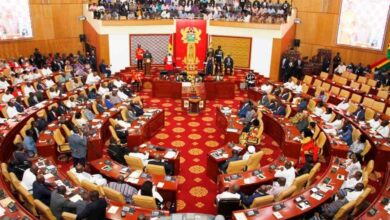Haruna Iddrisu to Present Recommendations on LGBTQ Bill to President Mahama
Haruna Iddrisu to Present Recommendations on Controversial LGBTQ Bill to President Mahama

- The Human Sexual Rights and Family Values Bill has sparked controversy
- Supporters argue that the bill is essential for safeguarding Ghanaian cultural and family values
- However, the Supreme Court dismissed their petitions, asserting that the bill has not yet become law
Haruna Iddrisu, the Member of Parliament for Tamale South, has revealed plans to submit recommendations to President John Dramani Mahama concerning the contentious LGBTQ Bill.
Though he kept the specifics of his proposed recommendations confidential, Iddrisu expressed confidence that his suggestions would align with national interests and help shape the bill’s direction.
Speaking ahead of the National Muslim Prayer and Thanksgiving at the national mosque on January 10, 2025, Iddrisu shared: “I have some ideas on the LGBTQ issue but I am yet to share them with the president on how he can re-own the bill, garner national consensus, and ensure it is consistent with Ghana’s laws and constitution.”
He emphasized that while it is important to address the social problem of LGBTQ rights in Ghana, the matter should not be reduced to a religious debate.
The Human Sexual Rights and Family Values Bill, which has sparked controversy, seeks to criminalize activities linked to LGBTQ advocacy. If enacted, it would penalize individuals involved in promoting or funding LGBTQ-related activities, as well as those offering indirect support.
Supporters argue that the bill is essential for safeguarding Ghanaian cultural and family values, which they feel are under threat from foreign ideologies. On the other hand, critics, including human rights groups, view the bill as an infringement on fundamental human rights, such as freedom of expression, association, and equality before the law.
The bill has faced legal challenges, including a Supreme Court case filed by broadcast journalist Richard Dela Sky and Dr. Amanda Odoi. They argued that the bill failed to meet constitutional quorum requirements during its legislative process, rendering it unconstitutional.
However, the Supreme Court dismissed their petitions, asserting that the bill has not yet become law and, therefore, cannot be subject to judicial review. Justice Lovelace Johnson clarified that legislative processes are not open to constitutional challenges until a bill receives presidential assent and becomes enforceable law.





